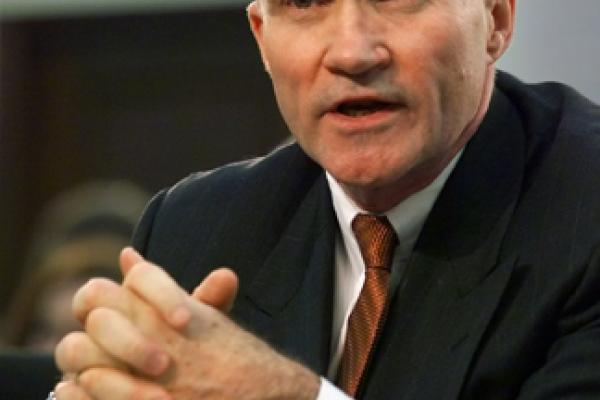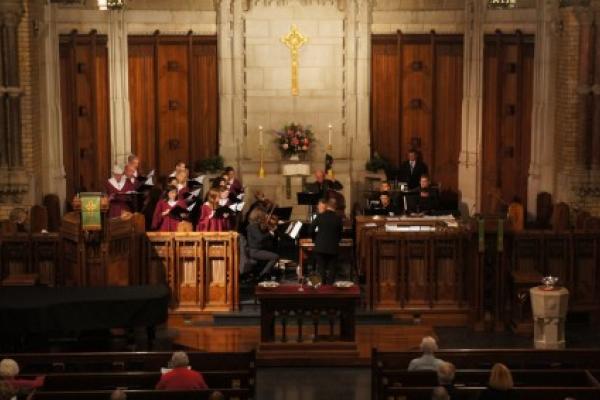But the angel said to the women, "Do not be afraid; for I know that you seek Jesus who was crucified. He is not here; for he has risen, as he said. Come, see the place where he lay. Then go quickly and tell his disciples that he has risen from the dead, and behold, he is going before you to Galilee; there you will see him." Matthew 28:5-7
“Christ is risen!” That is the Easter greeting that Christians around the world have used for generations. It is one of my favorite parts of Easter — I love to hear the words “He is risen.”
But for so many of us, Easter is not just a religious holiday — it is a personal celebration and re-commitment. How do we personally experience the resurrection? Every year, as I hear and say “He is risen,” I remember that it’s not just a theological affirmation, but something I need personally.
Because I need — I think we all need — to remember and celebrate the hope that those words proclaim. “He is risen” is much more than an optimistic expression. It is not an empty platitude or wishful thinking, but the assertion of that in the midst of all the personal and collective pain, brokenness, injustice, and oppression that we see or experience, Christ is victorious. And we start over every Easter with a new affirmation and conviction of the hope that will always change both our lives and the world.
As I’ve been personally reflecting on the resurrection, I wanted to share an adaptation from the last chapter of my book, The Call to Conversion that explores what “Christ is risen!” meant to the earliest disciples. I hope that it will help you this Easter, as you celebrate the fact that “He is risen, indeed!” and reflect upon what this day of hope means for you.
Former Florida Gov. Jeb Bush recently stated that people who come into the country unauthorized to find work and support their families are doing so as “an act of love.” In a Miami Herald op-ed, Archbishop Thomas G. Wenski is of Miami echoed the idea that this conversation is fundamentally about people:
To demonize irregular migrants as “lawbreakers” certainly generates heat but does not give any light to the urgent task of fixing our broken immigration system. This is not to condone the violation of the law — but as Gov. Bush suggests, these migrants are not criminals. Being in the United States without proper documents is not a criminal felony but a civil misdemeanor.
With his comment, Gov. Bush hit a nerve that runs through the immigration debate… With one three-word phrase, Gov. Bush has helped humanize these migrants — they are human beings who love their families, just as Americans do . This runs counter to the rhetoric of many shrill anti-immigrant voices and reframes the debate in human terms.
Read full article HERE .
Friedrich Nietzsche is a favorite whipping boy among Christians. It’s difficult to blame my fellow Christians for this. After all, Nietzsche is known for many provocative anti-Christian statements, but his most provocative statement might be that “God is dead.”
And yet, in his latest book A God Torn to Pieces: The Nietzsche Case , philosopher Guiseppe Fornari makes a claim that is just as provocative: “In the end [Nietzsche] was much closer to Christ than many who would claim to be Christians.”
Wait …Nietzsche was closer to Christ than many Christians? How could that be?
Nietzsche understood the implications of what Christ did on Good Friday better than many who claim to be Christians. Nietzsche was closer to Christ than many Christians because he knew the Christ that he rejected, whereas many Christians don’t know the Christ whom they call Lord and Savior.
Who was the Christ that Nietzsche rejected and that many Christians do not know? It’s the Christ who says from the cross, “Father, forgive them, for they know not what they do.”
A wide-eyed 4-year-old makes a fairly convincing case for the existence of an afterlife in Heaven Is for Real. But it’s Greg Kinnear, with his characteristic affability, who just about seals the deal.
Humor infuses the film (rated PG), which opens nationwide Wednesday (April 16) and is based on the best-selling book. By focusing on the bond between father and son, the movie avoids being heavy-handed or preachy, a wise choice for a film that asserts heaven exists, based on the earnest insistence of a precocious preschooler.
Video courtesy of Sony Pictures Entertainment via YouTube
“On the third day, he rose again.”
But how that statement is interpreted is the source of some of the deepest rifts in Christianity — and a stumbling block for some Christians and more than a few skeptics.
Did Jesus literally rise from the dead in a bodily resurrection, as many traditionalist and conservative Christians believe? Or was his rising a symbolic one, a restoration of his spirit of love and compassion to the world, as members of some more liberal brands of Christianity hold?
Muslim and civil rights groups welcomed the news that the New York City Police Department’s Demographics Unit will disband but said they still fear they may be targets of warrantless surveillance.
Muslim Advocates filed a lawsuit in 2012 to stop the program, and the group was later joined by the Center for Constitutional Rights.
“We need to hear from the mayor and NYPD officials that the policy itself has been ended and that the department will no longer apply mass surveillance or other forms of biased and predatory policing to any faith-based community,” said Ryan Mahoney, president of another Muslim civil rights group, the New York chapter of the Council on American-Islamic Relations.
Think Christmas, and carols come to mind: “Joy to the World,” “Silent Night,” “The First Noel.” But think of the other great Christian season — Holy Week and Easter — and most people draw a musical blank.
“The music written for Holy Week is some of the richest in our literature,” said David Ludwig, dean of artistic programs at Curtis Institute of Music in Philadelphia.




